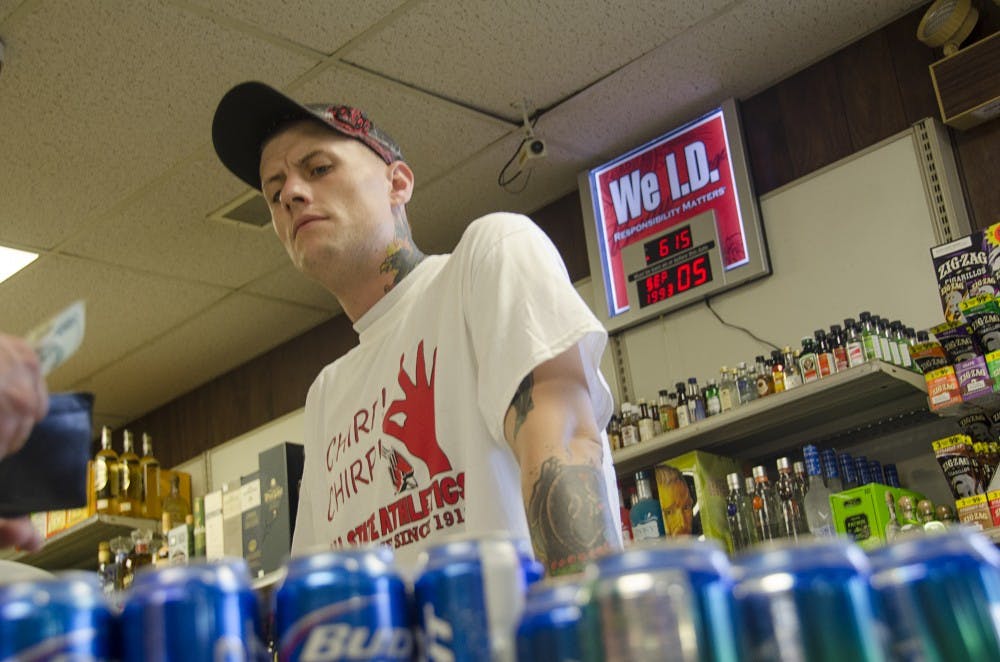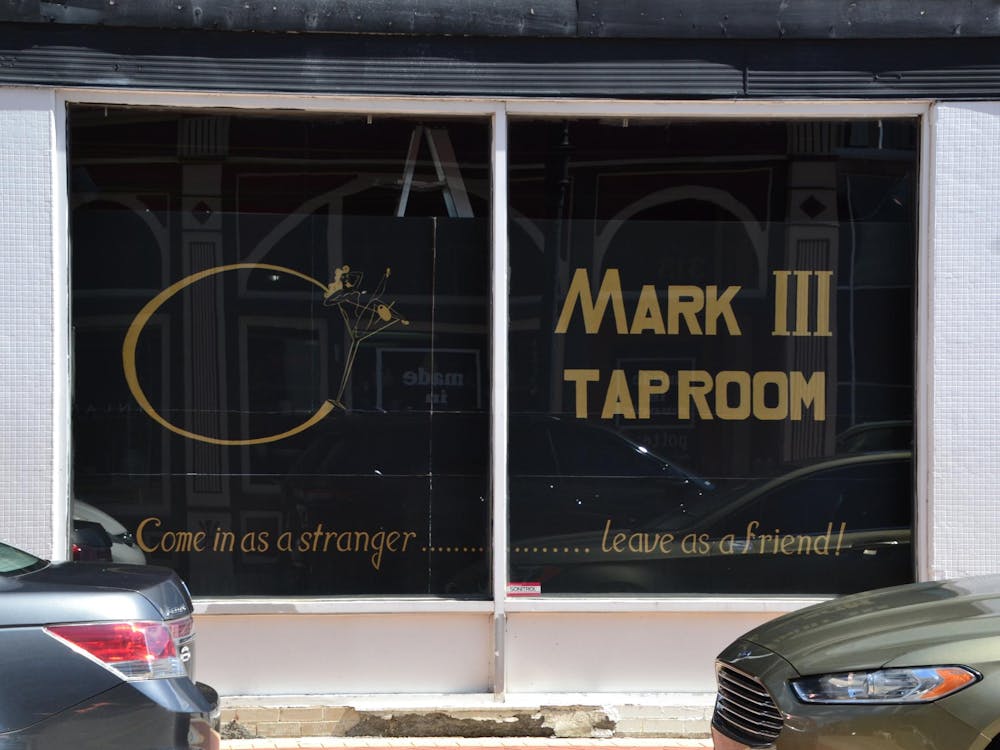2014 Lobbying
- Pro-Sunday sales: $12,000 from the Indiana Petroleum and Convenience Store Association-
- Anti-Sunday sales: $25,000 from the Indiana Association of Beverage Retailers
Source: National Institute on Money in State Politics
Indiana legislators are working on ending a Prohibition-era law to allow carryout alcohol sales on Sundays. The law had been shot down before, but has recently gained unprecedented support from legislative leaders.
Indiana state representatives Sean Eberhart (R-Shelbyville) and Terri Austin (D-Anderson) introduced House Bill 1026 to allow anyone with an alcoholic beverage permit to sell on Sunday for carryout.
Indiana is currently the only state that allows restaurants and bars to sell alcohol, but prohibits carryout from any establishment.
The limitation is considered a Blue Law, which according to Merriam-Webster, is a law that regulates work on Sundays.
For the supporters of Sunday sales, one of their main arguments for tossing out the law is their support for a free market.
“For package stores, they don’t have to be open if they choose not to,” said Scott Imus, executive director for the Indiana Petroleum and Convenience Store Association, an Indiana interest group. “But it’s really not the General Assembly’s job to pick the winners or losers in the marketplace.”
Last year, the IPCA gave more than $12,000 to political candidates in Indiana, according to the National Institute on Money in State Politics.
Still, their contributions are less than half of what their opposition is spending, which Imus said is what is keeping the laws in place.
The NIMSP reported more than $25,000 contributed from the Indiana Association of Beverage Retailers, an interest group opposing the Sunday sales. Both of the numbers do not include private donations and affiliated interest groups.
“I think Indiana consumers are tired of it,” Imus said. “The only reason [for the law] is the power of the liquor store lobby. It’s harder to pass a bill than it is to keep the status quo, and the liquor lobbies are powerful.”
According to a 2014 study by the Ball State Bowen Center of Public Policy and WISH-TV, 52 percent of the 600 Indiana residents surveyed said they support Sunday liquor sales.
But aside from giving package stores and their employees a day off, Patrick Tamm, CEO of IABR, said the law is an attempt to deregulate alcohol sales in general.
“Let’s be clear that this is Kroger, Walmart and others who have tried to deregulate the sale of alcohol,” he said. “We believe regulations on the sale of alcohol are important to communities.”
Tamm said the regulations are important for smaller stores, who have based their businesses off of being open for a 6-day week.
Linda Koger owns Muncie Liquors. Aside from her chain, there is only one other package store in Muncie. Koger was unavailable for comment.
Lifting the Sunday ban would make package stores such as Kogers have to adapt to another day of selling.
But for Darren Smith, owner of Buckeye Liquors in Union City, Ohio, he’s been through the adaptation process with his company already.
He said he has had to offer food sales along with offering specialized brands of alcohol products to stay competitive in the retail market since Ohio permits Sunday sales.
Buckeye Liquors also gets some traffic from Indiana on Sundays, but not enough to make a difference if the law were to change.
“For folks that don’t stock up on Saturdays, we’ll get an influx of some, but not a huge amount,” he said. “[The bill] may not be very impactful, but I’m sure we’d be able to tell.”
His store is located in Union City, is two blocks from the state line. It is the nearest out-of-state liquor store to Muncie.
“They are beneficial for us to the fact that people are looking for alcohol products and we’re so close to Indiana,” he said.
While the arguments on both sides are supported by multiple lobbyists and political action committees, the prohibition does not have a major impact fiscally either way.
“From our standpoint on the fiscal issue, it’ll remained the same,” said George Angelone, director of the Legislative Services Agency. The LSA is a nonpartisan organization that works within the Statehouse to help explain the impact of proposed legislation fiscally and socially.
While people may be able to buy alcohol for an extra day during the week if the proposal is passed, sales are also predicted to stay the same and will only shift to different days of the week, according to the bill’s fiscal note by the LSA.
According to a study by the Ball State Center for Business and Economic Research that focused on regulatory effects package stores between 1980 and 2007, states that introduced Sunday carryout sales saw an eight to nine percent reduction in package stores.
The same study analyzed states where when Sunday carryout sales were permitted and grocery stores were permitted to sell, states saw a more than 25 percent reduction in package stores.
Other effects of the legislation include an increase in hours of work for excise, since enforcement would last an extra day, according to the bill’s fiscal statement.
Brandon Thomas, Indiana State Excise public information officer, said they do not know the exact effects of the legislation yet since it hasn’t made it through legislation yet.
In 2013, the bill was also proposed by the same legislators, but was not given a hearing in the House Public Policy Committee. This year, newly appointed chair of the committee State Rep. Tom Dermody (R-LaPorte) said he would support the bill.
State Sen. Pro Tempore David Long also said he would not oppose the measure if it made it to the senate.
Despite the newly announced support and another year proposed, Tamm said he’s still convinced the bill will make it far.
“You can propose a bill as many times as you want,” he said. “That doesn’t mean it’s a good idea.”





